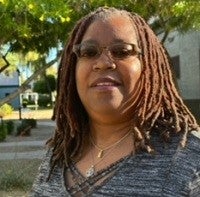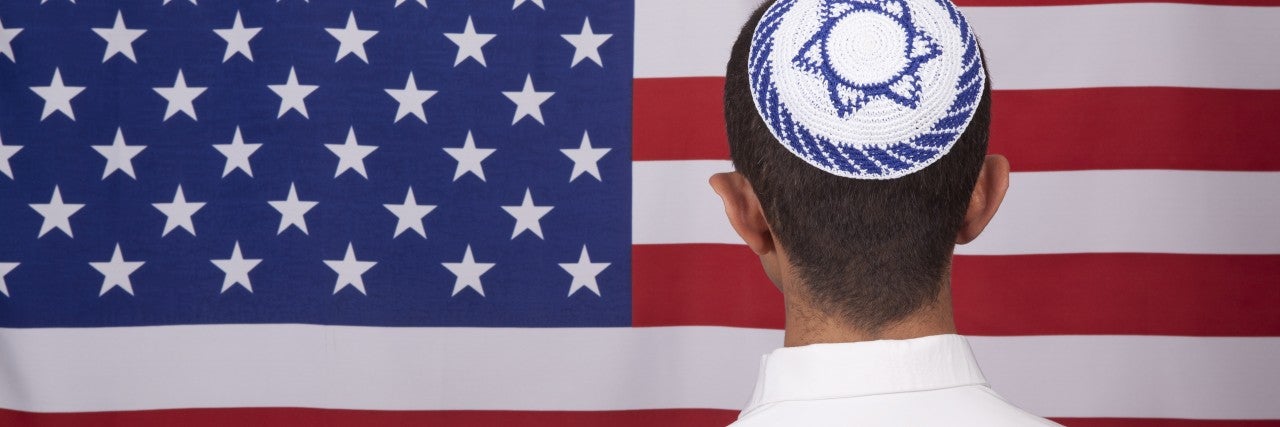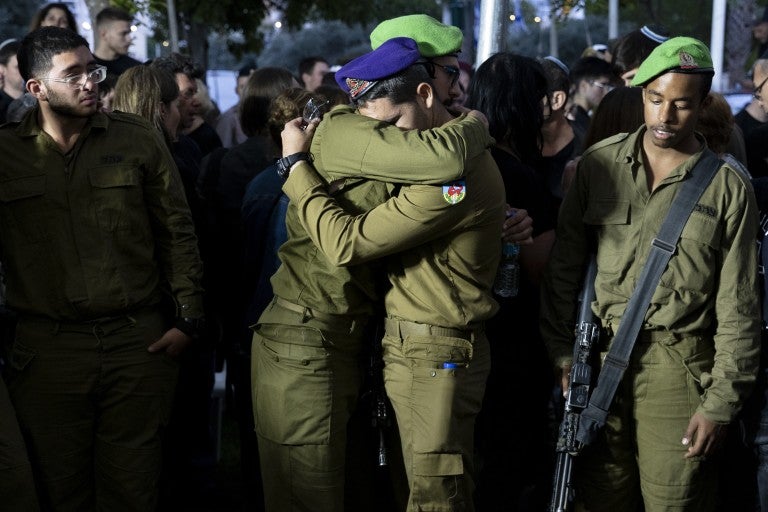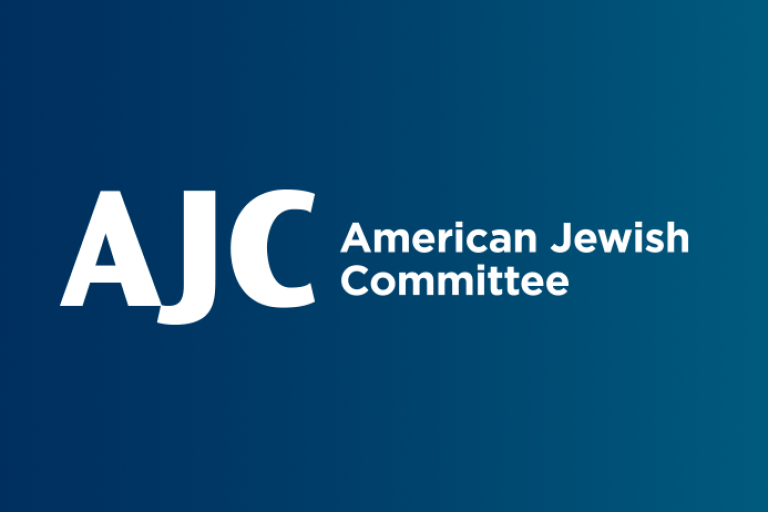May 3, 2024
From serving in the U.S. military to educating the next generation to saving countless lives and advancing medical research, Jewish Americans make important contributions to society every day.
While we should be able to celebrate these achievements and our identities as Jewish Americans, our community feels threatened and isolated right now. In this tumultuous moment, now more than ever, we must stand tall in honoring our community's resilience, innovation, and enduring spirit during this year’s Jewish American Heritage Month. American Jewish Committee (AJC) is honoring Jewish citizens who embody this spirit and make a difference through their extraordinary work. These individuals represent just a fraction of the Jewish Americans whose dedication to service, hard work, perseverance, and compassion have enriched the fabric of American society for generations.
As we reflect on the achievements of Jewish Americans, we also reaffirm our commitment to fostering a nation that celebrates diversity, embraces inclusivity, and honors the remarkable contributions of all its citizens.
Here are seven personal stories that shine a light on the impactful ways ordinary Jewish Americans continue to shape our nation’s past, present, and future.
Rahel Bayar
 Founder and CEO of The Bayar Group
Founder and CEO of The Bayar Group
Rahel Bayar has devoted herself to creating safe spaces and protecting the most vulnerable. It’s why she created The Bayar Group, where she develops and delivers workshops, keynotes, and training sessions to help prevent sexual harassment, misconduct, and abuse at K-12 schools, summer camps, corporate workplaces, faith-based organizations, and nonprofits nationwide.
Bayar, a former sex crimes and child abuse prosecutor in New York City and the daughter of a Jewish rabbi, feels strongly about upholding the values of integrity, justice, and compassion. She credits her upbringing as the daughter of two Jewish educators for cultivating a deep sense of responsibility to protect and advocate for vulnerable members of society, particularly children.
“I grew up in a family that was very much about finding your voice and your path,” she says. “It became clear that the way that I wanted to use my voice was in seeking justice on behalf of others. For me, it really felt like a privilege and a calling — the notion of being able to seek justice.”
Today, Bayar is helping to change perspectives around abuse prevention, empowering individuals and organizations to take proactive steps to create cultures of safety, respect, and accountability. Her tireless advocacy and unwavering commitment to justice offer solace and hope for the countless individuals impacted by abuse. Throughout it all, her Jewish faith is present.
“The idea of what it means to be the ethical person, the idea of what it means to use our words in a particular way, to be able to bring people together — for me are all Jewish values,” she says. “It weaves its way into everything that I do from the conversations that I have on Zoom to the policies that I helped develop, to the meetings and the boardrooms I sit in.”
Alexander Chaves
 Diversity, Equity and Inclusion (DEI) Consultant
Diversity, Equity and Inclusion (DEI) Consultant
Growing up in a multicultural interfaith household ingrained in both Latino and Jewish culture, Alexander Chaves cultivated a deep understanding of diversity from an early age. He became heavily involved in his local Jewish community as a Temple Youth Group President, and later, he led diversity task forces and pride organizations in college.
“I saw the different ways my different family members were treated, and I saw how my different communities didn’t get along,” he says. “I felt it was my job and my calling to bridge that gap between my communities and show that we are all at times disenfranchised and misunderstood but when we work together, we can bring the best parts of separate groups into a whole.”
These experiences led Chaves to pursue a career as a Diversity, Equity, and Inclusion (DEI) consultant, where he has helped government agencies and universities develop DEI trainings and initiatives, foster team building, facilitate dialogue between students and faculty, and mediate conflicts. Notably, Chaves recently spearheaded the development of a groundbreaking antisemitism training course for the Department of Justice, aiming to deliver this training around the country to communities experiencing conflict.
“The Jewish value of tikkun olam, or repair the world, is DEI in and of itself. We are trying to help repair the cracks in our communities and in our country,” he says. “I work with communities of different races and religions and just teach folks about other folks. When people understand each other, see each other, and meet each other, it really helps solve the divisions that we have now.”
Beyond his professional endeavors, Chaves continues to serve as the president of NJB+, a pioneering LGBTQ+ Jewish Social Organization dedicated to providing a safe space for its members in the DMV Region. His academic background, including an M.A. in Conflict Resolution from Georgetown University and a B.A. in Political Science from the University of Florida, equips him with the skills to navigate complex societal issues with empathy.
“I would love my generation and the generation that comes after me to be the ones to start chipping away at this armor that we've built,” he says. “People are afraid to have these types of conversations because it is hard and emotional. But if you don't have the conversation, if you don't sit down with your neighbor or the person who you completely disagree with, nothing is ever going to change. You have to be willing to sit, listen, and deal with that emotion — and then move past it so you can start making a better world.”
Lawrence Einhorn
 Distinguished Professor at the Indiana University School of Medicine
Distinguished Professor at the Indiana University School of Medicine
Dr. Lawrence Einhorn is revered in the realm of medical oncology, where he is regarded as an inspiration for an entire generation of cancer researchers and a hero to countless grateful patients. His name will forever be linked with revolutionizing testicular cancer treatment.
“I was fortunate enough to be on the ground floor, developing the therapy that really led to the cure of the great majority of these young, healthy patients who otherwise would be losing half a century of productive life,” he says.
Prior to his research, the survival rate of the disease hovered around just 10%. Thanks to Dr. Einhorn’s findings, 80% of men diagnosed today with metastatic testicular cancer survive. The Indiana University School of Medicine estimates that the lives of more than 300,000 young, otherwise healthy men — including famous cyclist Lance Armstrong — have been saved as a direct result of Dr. Einhorn’s discoveries. His current research focuses on mitigating the long-term effects of chemotherapy and reducing what is known as the “cost of the cure” so that people can live their healthiest lives after surviving cancer.
“I have the best job in oncology and the best job in medicine,” he says, sharing a story about an 8-year-old boy who sent him 83 cents in the mail a couple of years ago thanking him for saving his father’s life. “It’s an honor to be able to deal with a disease in young, healthy people where you tell them that the goal of therapy is neither relief of symptoms nor a slight prolongation of survival — the goal is a cure. And fortunately, we are able to achieve that goal in the overwhelming majority of these young patients.”
Amid growing antisemitism, Dr. Einhorn says recognizing Jewish American contributions is important, but it’s also crucial to acknowledge that Americans from all backgrounds have moved the field of medicine forward in significant ways.
“Antisemitism is nothing new. This is a story dating back many centuries ago, and it’s probably going to be there many centuries into the future,” he says. “The world’s safety and health would have suffered greatly if Hitler had his way in eliminating the Jewish population, but these unique advances and medicines are not limited to any particular religion or any particular nationality."
“I would hope that we look at ourselves as Americans, as a global community, in wanting to do the good and righteous thing that we should be doing — regardless of religion, nationality, race, creed or anything else.”
Andrea Goldstein
 Navy Veteran and Reservist
Navy Veteran and Reservist
Growing up in New York City, Andrea Goldstein felt a profound sense of gratitude toward the country that provided safety and opportunity to her Jewish family, who came to the U.S. in two waves in the early 20th century and then again before the Holocaust.
“A big component of what drew me to military service is definitely the spirit of tikkun olam, or repair the world, and a call to make the world a better place,” she says. “For me, the idea of putting on the cloth of the nation that welcomed my family as refugees was the best way to do that.”
Her career proves her unwavering commitment to service and advocacy, from her time in the U.S. Navy to her multiple roles in the federal government. “I wanted to contribute more positivity to the world,” she said. “As an intelligence officer, your job is to stop bad things from happening. You're not really doing anything to actively put positive factors into the universe that also do stop those bad things from happening.”
During her tenure as Acting Director for Force Resiliency at the Department of the Navy, Goldstein led critical efforts in combatting sexual assault and sexual harassment, as well as suicide prevention and response, prioritizing the well-being of military personnel. In her role on the House Committee on Veterans Affairs, she helped write more than 100 laws that supported women veterans, members of the LGBTQ community, sexual trauma survivors, and people living with PTSD to help them get improved access to health care and benefits. She also spearheaded the Women Veterans Task Force, where her contributions led to the development and passage of the Deborah Sampson Act, landmark legislation that significantly improved support for women veterans and survivors of military sexual trauma.
Today, Goldstein is searching for what’s next in her career while taking a sabbatical from her job as Principal Deputy Assistant Secretary at the Department of Health and Human Services.
“I’m now in another chapter, figuring out how I want to continue to serve, but also being very reflective and engaging in causes that I believe in, especially promoting the Jewish community,” she says. “I’m an American Jew. I’m a woman veteran. There's a lot in the overlap that I want to uplift.”
Alvin Rosenfeld
 Director of the Institute for the Study of Contemporary Antisemitism and Irving M. Glazer Chair in Jewish Studies at Indiana University, Bloomington
Director of the Institute for the Study of Contemporary Antisemitism and Irving M. Glazer Chair in Jewish Studies at Indiana University, Bloomington
Alvin Rosenfeld is a distinguished figure in the field of antisemitism research, renowned for his expertise as a lecturer and writer and as a founder of Indiana University's well-regarded Borns Jewish Studies Program, where he has served as director for 30 years. In recent years, Rosenfeld has focused on studying contemporary antisemitism, producing influential works that have ignited significant discourse and debate.
Beyond academia, Rosenfeld's dedication to combating antisemitism is evident in his involvement with national and international institutions and organizations. He has served on editorial boards, advisory committees, and prestigious councils, leaving a profound mark on global conversations about the Holocaust and what can be done to fight antisemitism today — a topic he didn’t expect to fill up so much of his time.
“The general notion was that given the scandal of Nazi mass murders of Jews, anyone who harbored antisemitic sentiments wouldn't really voice them in the public sphere. We were simply wrong because we're living at a time of really a resurgence of antisemitism,” he says. “Unfortunately, knowledge of past crimes is not sufficient to forestall future crimes.”
A recipient of numerous fellowship grants and honorary degrees, Rosenfeld's influence transcends borders, as evidenced by his extensive lecturing engagements across America, Europe, India, Israel, Germany, and Russia. His expertise has been sought after by esteemed institutions and governments, solidifying his status as a leading authority in his field. Through it all, Rosenfeld educates his students and the thousands who hear his lectures about what is ultimately at stake in the manifestations of anti-Jewish hostility taking place all over the country.
“As I tell my own students, as soon as you begin thinking in slogans, you stop thinking. While the first target may be Jews, it undermines civil liberties, and puts at risk the foundational basis for ongoing liberal democracy. I don't think we can afford to overlook that,” he says. “I'm just one of many who do what they can to help open people's eyes and understand it at a deeper level.”
David Warnock
 Seattle Police Department Officer and U.S. Army Veteran
Seattle Police Department Officer and U.S. Army Veteran
Dave Warnock's journey begins with the remarkable story of his great-grandfather, who emigrated from Russia and enlisted in the U.S. Army at just 16 years old. Later, both of Warnock’s grandfathers served in World War II, and his own father joined the Coast Guard. Joining the military always felt like an intuitive path forward for Warnock, and in the wake of 9/11, he joined the U.S. Army in 2004, serving two tours in Iraq.
Amid the harsh realities of combat — including being wounded in the field — and the profound camaraderie forged in war, Warnock found fulfillment and purpose serving alongside his fellow soldiers, who hailed from all corners of the country. Throughout his military career, Warnock remained one of the only Jews in his military companies, an experience he hopes helped build awareness, foster connection, and bridge cultural divides. “For a lot of people, I was the only Jew they ever met,” he says.
After leaving the military and going to college, Warnock felt drawn to law enforcement and found many of the guiding principles in the Torah and Talmud — such as being moral, fair, just and balanced, and holding people accountable — overlapped with what it meant to be a police officer.
“Something about working in that framework feels very satisfying,” he says. “Pursuing justice is something I have the gift of doing every day.”
Similar to his military career, Warnock says he often finds himself as one of the only Jewish police officers in his department, a fact he finds to be a rewarding experience because of the awareness he can raise and the connections he can make with fellow officers who are curious to learn more. It’s why he wants to see more Jewish Americans serve on the front lines — not just as police officers, but also as paramedics, firefighters, or emergency room doctors.
“If we don't participate more broadly in first responder professions, we’re really missing an important connection point with the broader American community,” he says. “As American Jews, sometimes we put ourselves in boxes that are not helpful, and we can do a lot more than we think we can.”
Victoria Washington

Criminal Defense Attorney
Victoria Washington is a seasoned attorney known for her unwavering commitment to justice. As the proprietor of her own law firm, she specializes in criminal defense, primarily focusing on capital murder cases.
For the past two decades, Washington has exclusively dedicated her practice to defending those facing the death penalty or already on death row, what one seminar called “defense of the damned.” Her dedication goes beyond legal representation as she believes her mission is to humanize and seek justice for those society has cast aside as irredeemable.
“People seem to think the death penalty is reserved for the worst of the worst, but it's not. It is handed out arbitrarily and capriciously. My job is to save lives,” she says.
With a staggering 100 major felony jury trials, including three high-stakes capital murder trials, Washington has earned the moniker "The Closer" for her adept negotiation skills and knack for securing favorable client outcomes.
“I believe that what I do is part of tikkun olam because it’s not just about saving a life. It's about acknowledging pain, grief and suffering, and it's also about forgiveness and redemption,” she says.
Washington finds solace and strength in her family and faith outside the courtroom. She has helped raise three daughters and remains a staunch Zionist — a deeply rooted belief from her mother.
"There is no other place in the world other than Israel that’s safe for someone like me — Queer, Jewish, Black,” she says. “The most heartbreaking thing of all is that in 2024, we must somehow prove our right to exist. We can’t let other people tell our story, and that’s what is happening right now.”


